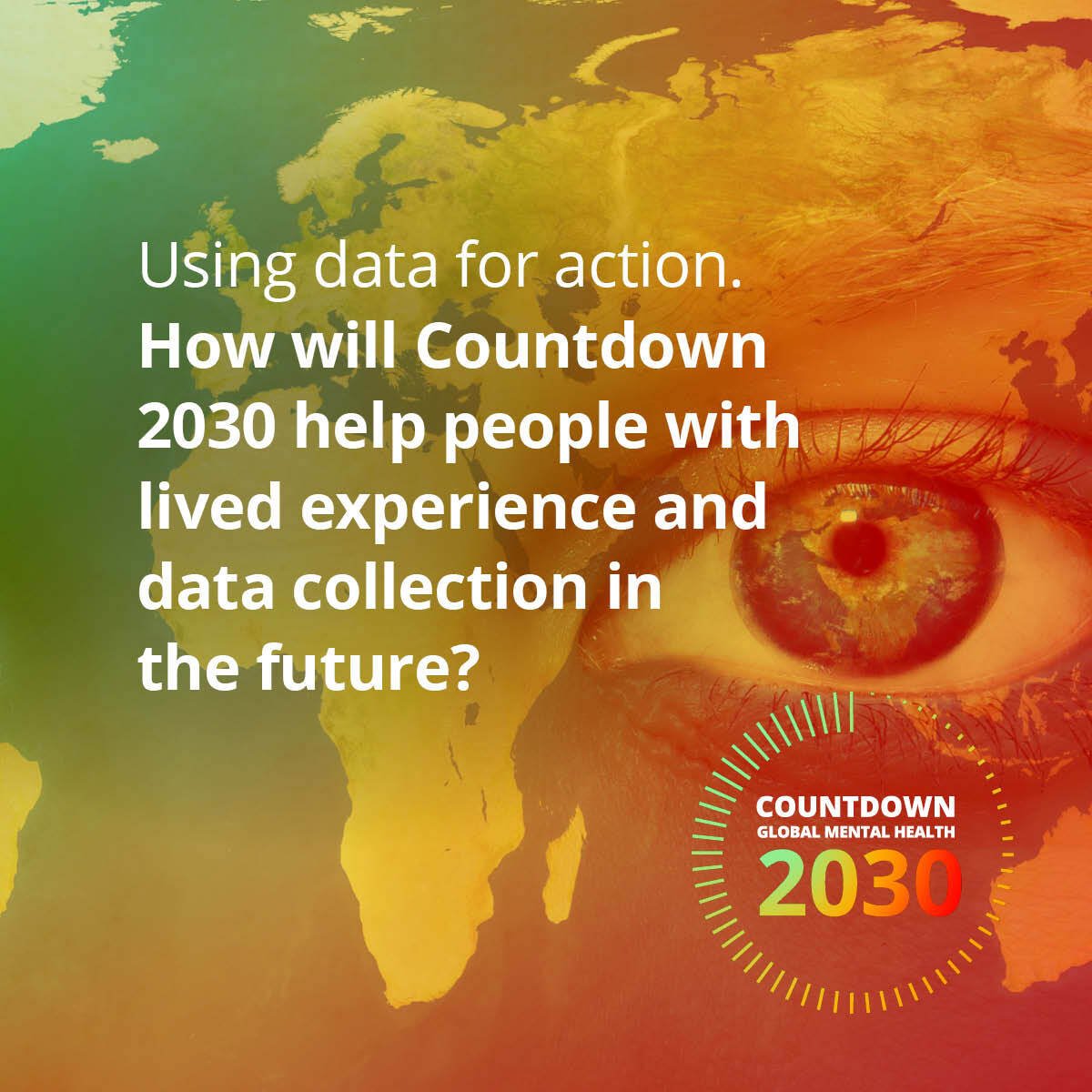MHForAll Webinar: Countdown 2030 & Data Advocacy
On Tuesday 28th February, the Global Mental Health Action Network hosted a Mental Health for All webinar on the importance of data for mental health advocacy.
A panel of experts discussed the current challenges in obtaining and utilising good data on mental health, as well as how initiatives and data monitoring platforms like Countdown 2030 are working to address these issues.
Expert panel:
Stephanie Whiteman, The Healthy Caribbean Coalition, Barbados
Shekhar Saxena, Professor of the Practice of Global Mental Health at the Department of Global Health and Population, Harvard School of Public Health, Switzerland
Sarah Kline, CEO of United for Global Mental Health
Liliana Carvajal, Statistics Specialist, UNICEF HQ, United States
Charlene Sunkel, CEO, Global Mental Health Peer Network, South Africa
Dan Chisholm, Programme Manager for Mental Health, WHO, Switzerland
Globally, nationally, and locally, there is a lack of mental health data. Access to good data is essential for global mental health advocacy, however issues with data collection and aggregation, access and visibility make this challenging.
Shekhar Saxena of Harvard Public Health School explains that the independent monitoring platform Countdown Global Mental Health 2030 (Countdown 2030) has been designed to address these challenges by making data on global mental health available to the public and improving the quality and quantity of data through the development of comparable data sets and dashboards.
The Countdown 2030 dashboards allow users to view, explore, and download data by country and indicator and the latest Countdown 2030 report gives readers a picture of the state of the world’s mental health and how we can improve it.
One of the key findings of the report is that there is insufficient data on the mental health of children and adolescents growing up in low and middle-income countries (LMICs). To address these data gaps, UNICEF is launching a new data collection initiative to gather reliable, representative and comparable information.
This initiative will come with guidance on how to culturally adapt the tools to ensure that the data collection is relevant for the young populations in different countries across the world.
“The gathered data will provide critical insights into understanding the burden of mental health conditions of young people and better understand the environment in which adolescents are thriving”
Data is especially important for young people and people with lived experience (PWLE) as an advocacy tool and a means to raise public awareness of their needs and challenges. Much of the data collected today is incomplete and does not capture impacts or user satisfaction with services.
The World Health Organization (WHO) is involved in data collection efforts through surveys of member states and while these surveys provide a global view of mental health policies and services, they do not always capture important information on outcomes.
Charlene Sunkel of the Global Mental Health Peer Network explains that what is currently missing in these processes is the voices of PWLE who can “verify what is reported on the ground” and provide insights into the “actual experiences at a grassroots level.”
“Countdown 2030 offers a more holistic set of indicators that go beyond looking at the capacity of mental health systems to also examine the broader forces that shape mental health.”
Sarah Kline of UnitedGMH states that when looking to the future of data, it is important to prioritise impact and well-being in data collection efforts, particularly for PWLE and young people.
Alongside this, routine health system data collection needs to be improved to capture better statistics on service access, uptake, coverage, and equity. Building partnerships with PWLE and empowering people to use data is also a key goal for the future. By addressing these challenges and improving data collection and use, we can work towards better global mental health outcomes for all.

